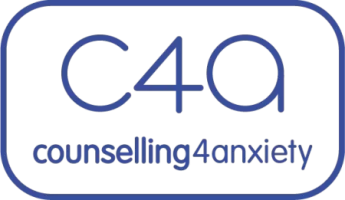Let's face it, panic attacks are rubbish. One minute you're relaxing, the next you're drowning in sweat, convinced your heart's about to explode. If that's happened to you, fear not! Panic attacks are super common, and there are ways to overcome them and to learn more about yourself through the process.
It is important to be aware that from negative events, positive learning can take place and taking this mental position is also important in the healing process.
What's a Panic Attack Anyway?
Imagine your body's alarm system going haywire. That's basically a panic attack. Your heart races, you breathe like you've just sprinted a marathon, and your mind fills with terrifying thoughts. It's horrible, but remember, it's not dangerous. It is simply your body's way of trying to keep you safe, with the threat (fight or flight) reactions being triggered. It is also important to remember that just because you may be having panic attacks, it is not a life sentence meaning that you will always have them. This is not the case and it may also be useful to mentally place the symptoms in the context of the specific time, place and space in which you are in. In other words. panic may be telling you that something is making you feel anxious and unsafe at that moment in your life. Exploring what that may be, is an important part of the therapeutic journey.
Calming the Panic: Top Tips
- Breathe Easy: Deep breaths are your best friend. Try the 4-4-6 technique: breathe in for 4 seconds, hold for 4, and exhale slowly (through pursed lips) for 6. Repeat until you feel calmer.
- Ground Yourself: Feeling disconnected? The "5-4-3-2-1" method can help. Name 5 things you can see, 4 things you can touch, 3 things you can hear, 2 things you can smell, and 1 thing you can taste.
- Focus on Facts: Panic attacks make you think the worst, but challenge those thoughts! Ask yourself, "Is this situation really life-threatening?" Chances are, it's not.
- Find Your Mantra: Repeat a calming phrase like "This will pass" or "I am in control" to anchor yourself during an attack.
- Move Your Body: Light exercise can burn off adrenaline and ease anxious energy. Go for a walk, do some skipping, or dance like nobody's watching (because, well, they probably aren't).
Bonus Tip: Talk About It! Don't bottle things up. Chat to a friend, family member, therapist or GP about what's going on. Talking can be a huge weight off your shoulders. Talking also helps you to contextualise your experiences of having panic attacks.
Getting Long-Term Help
If panic attacks are a regular pain, therapy can be a game-changer. A therapist can help you understand your triggers and develop coping mechanisms. In the UK, you can talk to your GP about getting referred for Cognitive Behavioural Therapy (CBT) which is a great option for anxiety. As a therapist using CBT as part of my therapeutic practise, I've seen firsthand how effective it can be in helping people overcome panic attacks. CBT helps you identify negative thought patterns that contribute to anxiety and develop healthier ways of thinking. It also equips you with practical tools to manage panic attacks in the moment and reduce their frequency over time.
Remember: Panic attacks are rubbish, but they are not reflective of you or your self-worth. With the right tools and support, you can totally take back control. Lastly don't be afraid to ask for help!

